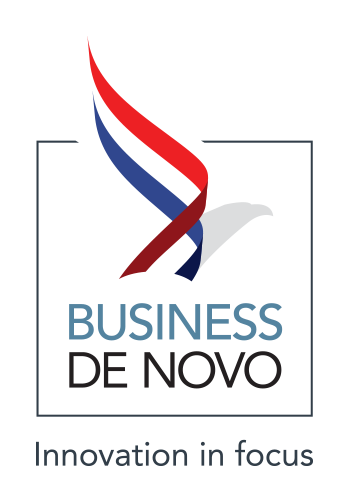In this environment, big companies have a huge advantage. When they decide to enter a business, they can pretty much win it because they have scale. But if you are overly worried about Apple or Google or Amazon.com getting into a space, you’d never invest in anything.
Avadis “Avie” Tevanian, Founder – NextEquity Partners
It’s brutally cold as we begin the New Year, but we can count on warmer weather soon. And we know it will come.
More of concern for me is our chilly environment for patentees in the US. We’ll see if it gets better, but I don’t know if more warmth will come this year—from Oil States or other fuel sources! But we must continue to work toward it.
This week, I read the above-captioned quote from Avie Tevanian in an interview in Barron’s. [Note: There’s a paywall.]
I respect Tevanian, whose accomplishments are numerous. He’s the founder of NextEquity Partners in Silicon Valley. Before that, he was with Elevation Partners, a respected venture capital outfit that famously invested in Facebook early on, and in Yelp. At Apple in the early part of the century, he led development of Mac OX, which became today’s Mac OS.
So Tevanian has deep knowledge of the technology sector and understands business and innovation. But I want to reflect on his comments a bit, because he’s missing something. He continues:
You have to hope that a smaller company has a better product than the big guys, or is defensible in some way. Sometimes, the big guys might buy it. And, unless it’s a really big market, the big guys will ignore it.
He’s right. Big companies today have an enormous advantage in the innovation economy. Not only can they easily tap the capital markets, but when these larger companies decide to enter a business, they also win because of their size and scale. They can devote more resources to good ideas. They can buy ideas they didn’t have themselves—or want to improve on—acquiring smaller, very good companies to enter new markets and grow that idea to scale.
But Tevanian’s either being deliberately cagey or is missing something:
“If you are overly worried about Apple or Google or Amazon.com getting into a space … you’d never invest in anything.”
Invest is the key word. Because smaller companies, entrepreneurs, inventors need investors to realize their ideas. Innovative small companies and entrepreneurial inventors need funding to survive. They could self-fund, by taking out a second mortgage or, as I like to joke, by selling the family Subaru. But it’s much more likely they shuffle their pitch to one investor circle after another, learning the route from angel investors to Series A and B funding rounds and so on.
They need investors. And investors need assurances—more than just, “It’s a great idea, and a great opportunity.” They need assurance that certain elements of the idea, once reduced to practice, can be meaningfully protected from the predations of those who would copy it, and invest rapidly to take market share.
Tevanian moves in lofty circles, and there’s likely little he misses. So, when he says those smaller companies are “worried about … getting into a space,” it’s not just the size of the competition he should acknowledge: the deck is stacked against them in our courts as well. If their ideas are copied, and if they face infringement, they used to be able to fight back. They used to have a fighting chance.
But it’s hard to quantify their chance these days. Smaller entrepreneurs and would-be patentees always took calculated risks, but today they surely must question the value of trying to innovate and subsequently bring their innovations to market. For it’s the size and market dominance of precisely these large technology companies—Apple, Google, Amazon.com, and others of their ilk—that are crimping innovation. They can infringe others’ patents almost with impunity, and they can out-invest and out-spend smaller companies both on the innovations and on the legal fees to tie up their competitors in knots. And our courts aren’t helping.
I know the weather will warm up. Our chilling patent environment? I’m less sure. But this year I’ll be focusing on this topic, because if we’re to change policy, we need both testimony and quantitative evidence to argue our case.
It’s a climate change we really need.
MIMI

As an inventor who is waiting for better patenting conditions prior to applying for a patent that might upset the pharmaceutical industry, I’m following your articles on the perils of patenting innovations. I thought this new administration, with their hue and cry for more industry, might be amenable to protecting innovators and their patents. It appears that other causes are taking center stage and innovators are still faced with the possibility of patent trolls usurping ideas with abandon.
What can be done about our dire situation by promoting the STRONGER Patents Act (S. 1390)? For your reference this link describes the problem and points to a line by line description of the Act:
https://www.coons.senate.gov/newsroom/press-releases/senators-coons-cotton-durbin-hirono-introduce-bipartisan-bill-to-protect-us-patent-holders-inventors.
Reading about your background, I’d appreciate your thoughts on this Act, and whether pushing for its adoption would help.
Thank you,
Ronald L. Lyons
Thanks Ronald. I will take a look. My general belief is that neither the President nor Congress has much appetite for patent reform these days, unfortunately.